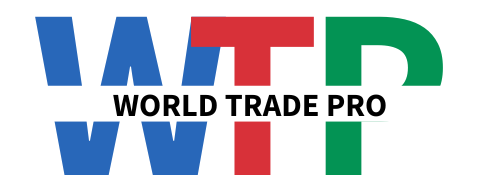Who manufactures copper cathode in Congo?
Quote from chief_editor on September 22, 2023, 7:30 pmThe Democratic Republic of the Congo (DRC) is endowed with vast copper reserves, estimated at over 20 million tonnes. This has attracted major mining companies to set up large-scale copper production in the country, including manufacturing refined copper cathode.
Freeport-McMoRan operates Tenke Fungurume, one of the largest copper-cobalt mines in DRC, located in the copper-rich Katanga Province. The mine produces copper concentrates, which are then toll refined into copper cathode at facilities in nearby Zambia. At peak production, Tenke Fungurume can produce over 250,000 tonnes of copper cathode annually.
China Molybdenum Co. owns a majority stake in the Tenke Fungurume mine as part of a joint venture. The company has ambitions to upgrade the mine’s infrastructure to support more in-country copper cathode manufacturing. China Moly is also advancing its Kisanfu copper-cobalt project which includes a refinery.
Switzerland-based mining and trading giant Glencore operates two major copper-cobalt mines in DRC - Mutanda and Kamoto Copper Company. The mines feed Glencore’s Luilu refinery, located near Kolwezi. With annual copper cathode capacity exceeding 200,000 tonnes, Luilu is one of Congo’s largest refineries.
Ivanhoe Mines is developing the Kamoa-Kakula project into what is projected to be the world’s second largest copper mine. Phase 1 involves mining copper sulphides to produce concentrate, which will be refined into cathode by third parties. Ivanhoe plans to build a refinery at Kamoa-Kakula in phases.
Chemaf is DRC’s largest private copper-cobalt producer, operating the Etoile mine and Usoke copper-cobalt plant. Chemaf produces over 50,000 tonnes per year of copper cathode from these Katanga mines. Expansion projects are underway to increase copper cathode output.
So in summary, mining giants like Freeport, Glencore and China Moly lead DRC’s copper cathode manufacturing currently, with refining largely done at facilities in Zambia. However, with new projects upcoming, Congo aims to refine more copper domestically into cathode.
The Democratic Republic of the Congo (DRC) is endowed with vast copper reserves, estimated at over 20 million tonnes. This has attracted major mining companies to set up large-scale copper production in the country, including manufacturing refined copper cathode.
Freeport-McMoRan operates Tenke Fungurume, one of the largest copper-cobalt mines in DRC, located in the copper-rich Katanga Province. The mine produces copper concentrates, which are then toll refined into copper cathode at facilities in nearby Zambia. At peak production, Tenke Fungurume can produce over 250,000 tonnes of copper cathode annually.
China Molybdenum Co. owns a majority stake in the Tenke Fungurume mine as part of a joint venture. The company has ambitions to upgrade the mine’s infrastructure to support more in-country copper cathode manufacturing. China Moly is also advancing its Kisanfu copper-cobalt project which includes a refinery.
Switzerland-based mining and trading giant Glencore operates two major copper-cobalt mines in DRC - Mutanda and Kamoto Copper Company. The mines feed Glencore’s Luilu refinery, located near Kolwezi. With annual copper cathode capacity exceeding 200,000 tonnes, Luilu is one of Congo’s largest refineries.
Ivanhoe Mines is developing the Kamoa-Kakula project into what is projected to be the world’s second largest copper mine. Phase 1 involves mining copper sulphides to produce concentrate, which will be refined into cathode by third parties. Ivanhoe plans to build a refinery at Kamoa-Kakula in phases.
Chemaf is DRC’s largest private copper-cobalt producer, operating the Etoile mine and Usoke copper-cobalt plant. Chemaf produces over 50,000 tonnes per year of copper cathode from these Katanga mines. Expansion projects are underway to increase copper cathode output.
So in summary, mining giants like Freeport, Glencore and China Moly lead DRC’s copper cathode manufacturing currently, with refining largely done at facilities in Zambia. However, with new projects upcoming, Congo aims to refine more copper domestically into cathode.

